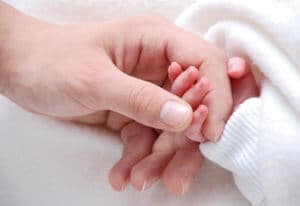Unfulfilled desire to have a child – what now? Almost one-eighth of all couples want a child, but it just won’t work out. The cause can be medical, psychological, or hormonal. Often it is due to a temporary disturbance of fertility, for example through excessive consumption of nicotine or alcohol, excessive sport, or being very underweight or overweight. The fact that fertility is strongly inhibited with age is also a factor that is often underestimated. But of course, there are also people who are completely infertile. If you can imagine being able to offer a home to a child from another family, this is definitely a way to escape childlessness. There are very many children who are looking for a new, better home. For example, you can consider adoption or take in a foster child. If you take in a foster child, you are, so to speak, a “temporary parent”.
Table of contents
What Is The Difference Between An Adopted Child And A Foster Child?
Many inexperienced couples who want a child to join them express this desire something like this: “We would like to adopt or foster a child” – However, there are huge differences between a foster relationship and an adoption. This is particularly evident in the legal circumstances.
Adoption
In the case of an adoption, the adopted child also legally belongs to you – like a child of biological descent. This means that you assume all the rights and obligations of the natural parents. The child bears your last name and becomes a part of the family permanently. In addition to the entitlement to state transfer payments (for example, child benefit), you will be granted three years of parental leave. If the adoptive parents die, no distinction is made in the legal succession between natural children and adopted children. Therefore, if there is no will, the child is at the beginning of the succession. If you are thinking about adoption, take a look at our article on “Is adoption right for you?”
Foster Care
When you take in a foster child, the foster child does not legally become your legal child. In that case, foster parents cooperate with the child’s legal parents, such as when there are important decisions to be made. However, the contact is usually limited to organizational matters. And even if the natural parents want to take their child back to them, this is possible under certain conditions. The foster parents therefore only take the child in for a limited period of time. In this case, the child also keeps its birth name. They can take parental leave in the same way as in the case of adoption, but they do not receive the parental allowance. This is because the parental allowance is replaced by the foster care allowance. In the event of the death of the foster parents or within the foster family, it must be written down in the will whether and what the foster child is to inherit. Otherwise, the child would not be entitled to inherit.
Advantages Of Taking In A Foster Child
When taking in a foster child, the selection criteria are not quite as selective as with adoption. The process is not as lengthy and leads more quickly to a successful placement. The likelihood that foster parents will meet the requirements in a foster child proceeding is relatively high. On the one hand, the number of competitors for a foster child is lower than in adoption, and on the other hand, your private life is not completely scrutinized and examined in the process. This procedure is very time-consuming and often wears on the nerves of the adoptive parents-to-be.
Another advantage of foster child adoption is that older children can also be taken into care. It is not only infants or toddlers who are looking for a new home. In the case of a foster child, you can indicate wishes regarding the age to the responsible youth welfare office. These will be taken into account as far as possible. However, you should be aware that you may ultimately be assigned a child by the Youth Welfare Office who does not have the desired age.
In addition, financial support plays a major role for many foster families. Foster parents receive monthly foster care payments in the case of full-time foster care. These are based on the age of the child and, for example, total around 745 euros per month for ages zero to six, 846 euros per month for ages six to twelve, and 913 euros per month for ages twelve to 18. In individual cases, there may also be subsidies and allowances, for example for the costs of school trips, vacations, and vacation trips, or initial equipment.
What Requirements Do Foster Parents Have To Meet?
The type of family plays a subordinate role. Thus, flat-sharing communities, single parents, and heterosexual, as well as homosexual couples, can apply. It is also not decided whether they earn particularly much salary, as what they work or whether you are married. The most important condition if you want to take in a foster child is both emotional and financial stability. If you take in several foster children at the same time so that they can bond together, one thing should be kept in mind: the youngest child in the family should at best be older than two years.
Financial Security
You should live in financially secure circumstances and be prepared to spend part of your income on the child in order to be able to offer optimal living conditions. Although you will be subsidized by the Youth Welfare Office in the form of a care allowance and, in individual cases, further allowances, this amount is intended in particular for the costs relating to maintenance. In addition, it must be ensured that the apartment or house provides sufficient living space so that the child also has its own place of retreat. Further requirements for foster parents are a police clearance certificate and a health certificate. Furthermore, a minimum age of 25 years applies for the admission of a foster child.
High Resilience
Another requirement is patience, stress resistance, and resilience because these are often children with a history of suffering. In severe cases, they have even been neglected, beaten, or experienced domestic violence. Other examples of foster children’s often difficult pasts include drug problems, illnesses, or the financial hardship of their birth parents. Likewise, sometimes a child is placed in foster care when one of the parents is unknown or absent. The right portion of courage, idealism, and sense of responsibility must therefore not be missing on the part of the foster parents.
Furthermore, parenting is never easy and brings a lot of challenges. It does not matter whether it is a biological, adopted, or foster child. What is important is that the foster child is accepted for who he or she is. Many have adopted certain behaviors to deal with their past. In such a case, the child must be dealt with intensively, as he or she is particularly dependent on the help of the foster family. After you take in a foster child, he or she will probably not really let anyone get close to him or her for the first time. Be sensitive and give him time. Other children will very quickly find a caregiver in the foster parents and some will cling very strongly as a result. Each child is individual and it is important to never give up on the child no matter what stage of development they are going through. So even before you take in a foster child, be clear about where your strengths lie and where your limitations are. It’s best to think through potential problems that may arise with the foster child ahead of time. This will enable you to identify them as early as possible, assess them realistically, and find a suitable solution.
Taking In A Foster Child – The Application Process
First Steps
If you are interested in taking in a foster child, a possible first step is an information session at the youth welfare office or contacting other foster parents. In general, the local youth welfare office is first contact and mediator.
After you have decided on a foster child, you must apply. Such an application process usually takes several months, depending on the agency. In addition to filling out and submitting various application documents (for example, a certificate of earnings) and questionnaires, you can expect preparatory seminars and interviews with professionals. A visit to your home by an employee of the Youth Welfare Office is also intended to ensure that you can offer the foster child a good environment. During the application process, a lot of openness is required from you in the area of family life, worldview, life planning, childhood, and educational goals.
The Motives Of The Foster Parents
Of great importance in the suitability determination process is the foster parent’s motive. Why do you want to take in a foster child? Why exactly are you the ideal foster parents? If they want to take in a foster child so that your biological child has a sibling, or because of financial benefits from government transfer payments, or perhaps because you hope it will create a closer bond with your partner – then you probably won’t be assigned a foster child. The welfare of the foster child must be paramount in this decision!
If You Are Considered As A Foster Parent – What Happens Next?
After you have successfully gone through the procedure and it has been determined that you are accepted as a potential foster parent, the Youth Welfare Office will approach you as soon as a foster child comes into question for you. However, before a decision for or against the respective child has to be made, you will receive sufficient information about the child, its biological parents, its history as well as any conspicuous behavior. Until you finally decide on this new challenge, sometimes weeks can pass. This is because you may well decide against the foster relationship in a specific case. After all, a good relationship should develop between you and the foster child during foster care. Not only must the child feel comfortable in the foster relationship – but the foster parents must also feel confident in the care in the respective case. After a foster relationship has been approved, employees of the Youth Welfare Office are also at your side after the placement for support or advice.
How Is The Foster Relationship Structured?
On-call Foster Care
The child is placed in a foster family for a short period of time only. The duration of the foster relationship is limited to a maximum of one quarter of a year. The reason for placement in a foster family is an acute emergency situation that endangers the child’s well-being. This can be the case, for example, in the event of domestic violence, sexual abuse, lack of care, drug addiction or addiction problems of the biological parents, or neglect. While the child is separated from his or her biological family and living in a safe family environment, the further procedure is clarified. Will the child be returned to his or her birth parents? Will it be placed in full-time care? Are there relatives or acquaintances with whom it can be placed on a long-term basis? In other words, standby care is a transitional solution.
Full-time Care
This foster relationship is intended to be long-term. The child often lives with a foster family for several years and lives with them day and night under the same roof. The foster relationship then usually continues until the foster child reaches the age of majority. The upbringing and care now lie with the foster parents for the long term. This is to ensure that the child can grow up in stable family conditions and build up a bond with the parents. You can find everything about the parent-child relationship in our article on the topic “The parent-child relationship: attachment, trust, and support”.
You Should Definitely Keep This In Mind
If you take in a foster child, it is imperative to clarify in advance whether the entire family agrees with a foster relationship and is completely behind it. Especially your own biological children or children who have been part of the family for a long time could react with jealousy towards the new family member. Especially because the new family member needs a lot of attention in the beginning. Prerequisites for a successful foster relationship are a lot of love, support, tolerance, patience, security, and understanding.
Foster children often (especially at a young age) cannot fully understand why they were separated from their biological parents. Under certain circumstances, the foster child will develop feelings of guilt, insecurity, or helplessness. In addition, the fact that he or she has two families from the time of foster care – a foster family and his or her family of origin can contribute to this. With a great deal of sensitivity, the child must be taught that he or she does not have to feel torn between his or her two families.
Another important point is that the foster child may miss his or her, biological parents. Even if it had bad experiences in the parental home, the special connection to the producers remains in many cases. Contact with the biological parents should usually be maintained (depending on the individual case) and is certainly desirable. This is because a later return to the family of origin is possible under certain circumstances.
Furthermore, you should keep in mind when taking in a foster child that the duration of the foster relationship is not unlimited. Although foster children often remain with the foster parents until they reach the age of majority, it is also possible that the circumstances in the child’s parental home will stabilize again in such a way that a return is initiated. You must therefore be able to deal with this uncertainty.
In general, such a step should be well thought out. Proceed as objectively as possible. In the article “What women should know before they decide to have a child” you can get some ideas.
Taking In Unaccompanied Refugee Minors As Foster Children – Is That Possible?
Especially in recent years, the number of refugees in Germany has increased enormously. Among them are many children who have lost their parents. Either because they died on the run or in their home country, or because the refugee children left the country without their parents. Here in Germany, they are taken into care of by the Youth Welfare Office for the time being. In the long term, host families or foster families are sought to accommodate the children. In this procedure, too, the foster parents must meet certain requirements and go through an application process. In principle, the acceptance of an unaccompanied minor refugee into a foster family is quite desirable. If you are interested, please contact your local youth welfare office.












